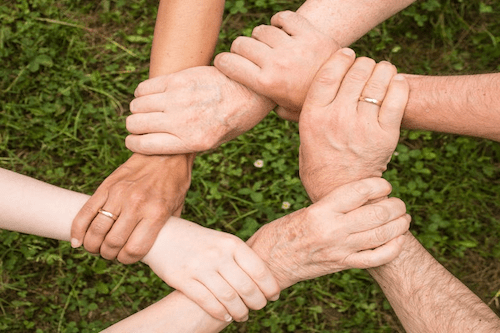How Helping Others Helps You Live Longer

If you’ve ever been involved in a volunteer program, you know how uplifting and fulfilling the act of helping others can be. There’s no other feeling in the world quite like seeing their smiling faces and knowing that you helped make a difference in somebody’s life. You know that serving the community supports those around you, but did you know it can help you as well?
Turns out, helping others can actually help you live longer. You heard that right: the key to a long and fruitful life might exist in what you give, not in what you get. So, how exactly does helping others help you live longer? Let’s dive into the science behind volunteering and the positive impact altruism can have on your life.
According to TIME, a recent review of the health effects of volunteering found that helping others on a regular basis—such as serving in a community shelter or working with foster youth—can reduce early mortality rates by 22%, compared to mortality rates for those who don’t participate in altruistic activities. The review was published in BMC Public Health and included 40 different studies. Here are a few of the reasonings they found in connection between altruistic acts and mortality rates.
Reduced Rates of Depression
Serving others through volunteering and charitable giving can actually reduce rates of depression and feelings of loneliness within ourselves. Helping others gives you a sense of purpose, pride and compassion knowing that you made a difference in someone’s life. In other words, by brightening others’ days, you can also brighten your own. And when depression rates are reduced, your mental health improves, thus boosting your physical health and helping you to live a longer, fuller life.
Lowered Blood Pressure
Not only does volunteering affect your mental and emotional health, but it can also directly influence your physical health. In a recent study from Carnegie Mellon University, published in Psychology and Aging, researchers found that adults over age 50 who volunteered on a regular basis were less likely to develop high blood pressure. As we age, blood pressure is a strong determining health factor, because it contributes to issues such as heart disease, stroke and… you guessed it, premature death. By helping others in your community, you can also lower your blood pressure and lengthen your lifespan.
Increased Sense of Life Satisfaction
In the craziness of life, it can be easy to get lost in your work, caring for kids or even maintaining a marriage. Through all this mayhem, finding a true calling and purpose is difficult. For many people, volunteering and serving in the community helps provide a new sense of life satisfaction. Knowing that you can truly make a difference in another human being’s life—that brings a real sensation of joy. And when we have an increased sense of life satisfaction overall, each day brings with it a new feeling of purpose and fulfillment.
Expanded Social Connections
Finally, the more you volunteer, the more likely you are to interact with other people. These people can be completely new and different to those already in your social circle, and help expand your current sense of social connections. To put it simply: when you volunteer, you can also make new friends. And study after study has shown that as we age, social connections are a vital component in maintaining our vitality and living longer. By getting involved in the community, your broaden your circle of peers and bring in new avenues for social interactions.
While helping others definitely makes a difference in the community, it can also help you, too. Through reduced rates of depression, lowered blood pressure, increased sense of life satisfaction and expanded social connections, volunteering can actually help you live longer. See how you can get involved in a cause you care about in the community and live a happier, fuller, longer life.
